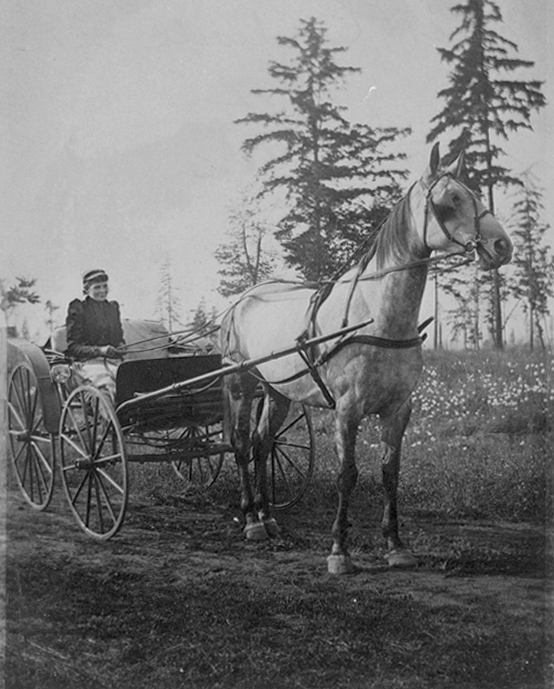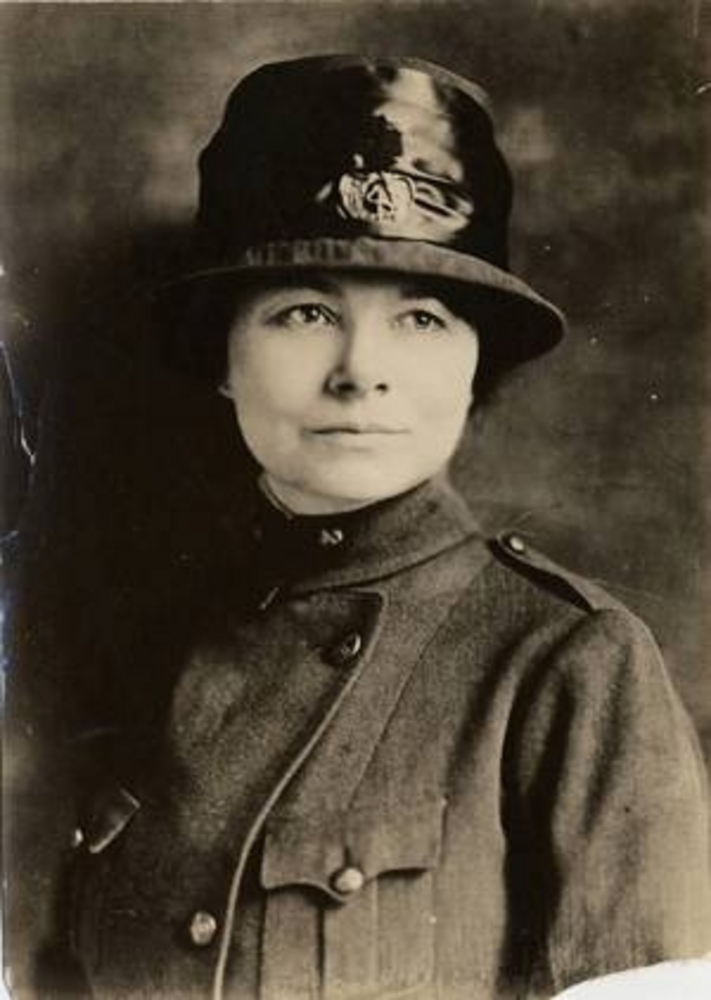As an activist and physician, Katherine Manion contributed to Oregon women's quest for complete citizenship in the early twentieth century. She also worked for a secure place for women physicians in Oregon medicine.
Katherine C. Galbraith was born in Walla Walla, Washington, in 1867 and graduated from St. Mary’s Academy in Portland in 1888. She married James Manion, had a son, and was widowed. She may have sought a medical education to support herself and her son.
In 1903, Manion graduated with honors from the University of Oregon Medical Department, received her medical license, and established a practice in Portland, specializing in diseases of women and children. She joined the Medical Club of Portland, a society organized in 1900 to promote and support the work of women physicians in the city, and served as secretary of the club in 1905 and as president in 1908. She was also active in the University of Oregon Alumnae Association and was president of the Portland chapter for two years, from 1906 to 1908. A member of the Oregon State Medical Society and Portland City and County Medical Societies, Manion served as treasurer for both organizations and assisted in organizing events for visiting women at annual meetings in Oregon.
As a strong supporter of woman suffrage, Manion served on the board of the Portland Branch of the College Equal Suffrage Association in 1912. That year she was in charge of the distribution of suffrage literature for the successful ballot measure.
Many women saw the opportunity to serve in World War I as an important extension of citizenship for women. During the war, many of the 6,000 women physicians in the nation mounted a campaign to challenge the U.S. Army and War Department policies prohibiting officer status for medical women. Katherine Manion was at the center of one of several important cases that tested this policy.
In May 1918, Manion and her Portland medical colleagues Mae Cardwell, Mary MacLachlan, and Emily Balcom prepared portfolios with their credentials and drove to the base hospital of the Vancouver Barracks training camp in Washington State to enlist in the Army Medical Reserve Corps. Local military officials refused their applications, and the Surgeon General told them they were ineligible for service as women. The case drew national attention, and Manion considered it a distinction to have mounted the challenge even though the army refused to grant the women commissions because of their sex.
Following the war, Manion accepted a position as medical examiner of the Woman’s Benefit Association at the organization’s headquarters in Port Huron, Michigan. Members of the Medical Women’s National Association elected her to the presidency of the organization in 1924. She brought her organizational skills and her experience with the Medical Club of Portland and other Oregon medical societies to this national organization for women physicians.
After her retirement in 1935, Manion spent the last years of her life in Coronado, California. She died in 1956 at the age of ninety-two.
-
![]()
University of Oregon Medical School at NW 23rd and Lovejoy street in Portland, c.1919.
Courtesy Oregon Health & Sciences University Digital Collections
Related Entries
-
![Mae Harrington Whitney Cardwell (1853-1929)]()
Mae Harrington Whitney Cardwell (1853-1929)
Mae Harrington, the first woman to hold a position on a hospital staff …
-
![St. Mary's Academy]()
St. Mary's Academy
St. Mary’s Academy in downtown Portland is a Roman Catholic high school…
-
Woman Suffrage in Oregon
The campaign to achieve voting rights (also called suffrage or the fran…
Map This on the Oregon History WayFinder
The Oregon History Wayfinder is an interactive map that identifies significant places, people, and events in Oregon history.
Further Reading
“Women Doctors Find Opportunity Does Not ‘Knock.’” Oregon Journal, May 5, 1918, sec. I, pp. 1,10.
Jensen, Kimberly. Mobilizing Minerva: American Women in the First World War. Urbana: University of Illinois Press, 2008.




